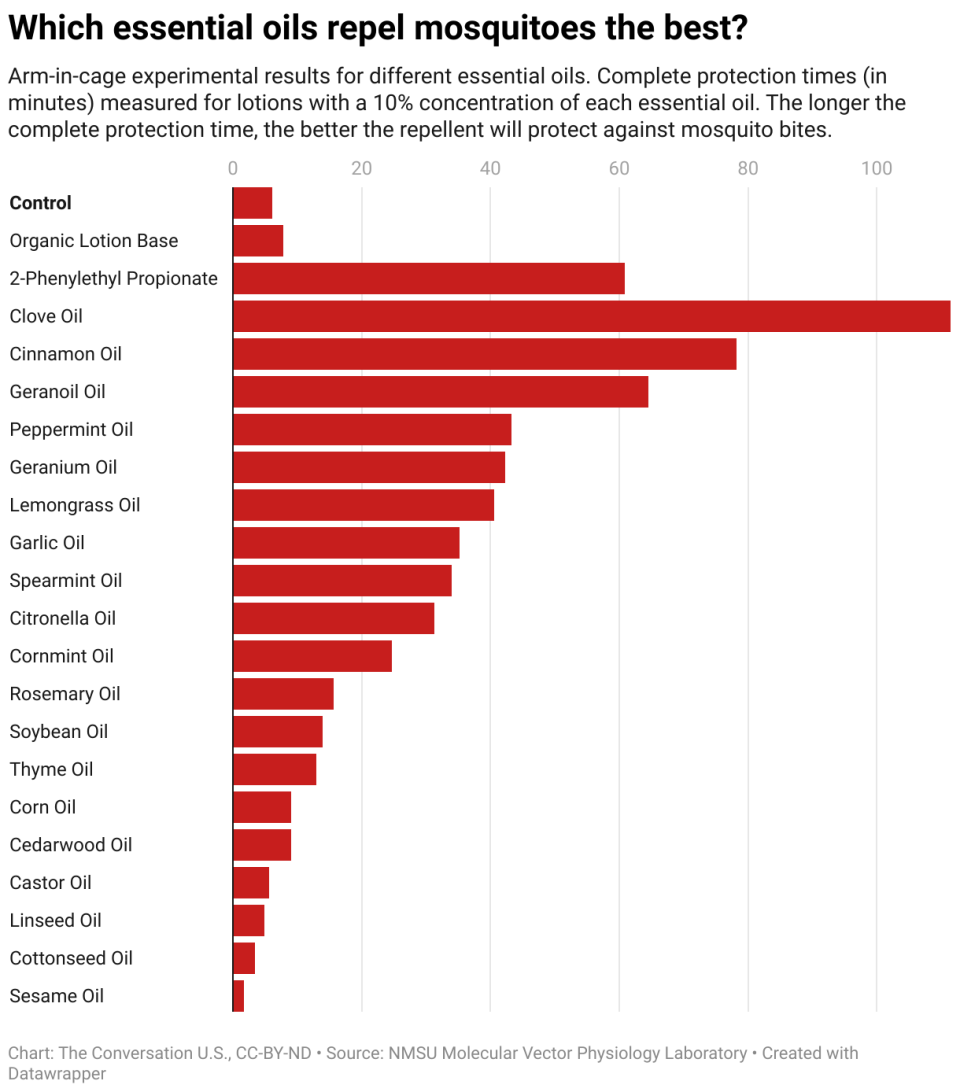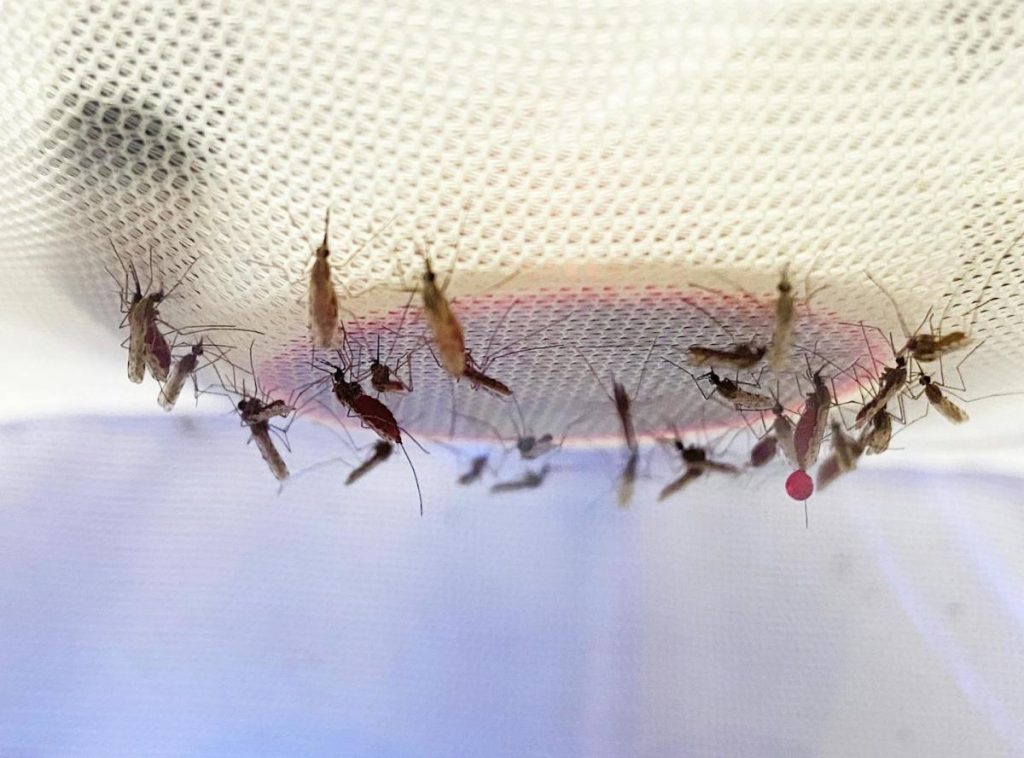Summer is officially underway, bringing with it mosquito outbreaks across the U.S. Using mosquito repellent can help protect both your health and your mind this summer.
Not only do mosquitoes leave unpleasant itchy bites on the skin, but they also pose serious, sometimes life-threatening, health risks. Mosquito bites can transmit harmful pathogens that cause dangerous diseases, such as: malaria, Dengue fever, Zika fever and West Nile.
Preventing mosquito bites
Female mosquitoes bite humans to obtain important nutrients from the blood. To make eggsEach blood meal produces around 100 mosquito eggs that hatch into active larvae.
There are several ways Preventing mosquito bitesThis ranges from wearing long, loose clothing and limiting the amount of time you spend outdoors to installing screens on windows to remove standing water that mosquitoes can breed in.
But one of the best ways to protect yourself when you go to places where hungry mosquitoes are flying around is to Mosquito repellent.
Our team New Mexico State University Laboratory of Molecular Vector Physiology After over a decade of researching different types of mosquito repellents and how well they work, here’s what you need to know to protect yourself from mosquitoes this summer.
About repellents
The use of mosquito repellents dates back a long way in history, certainly long before any historical records were kept. Some of the oldest records The use of mosquito repellents dates back to early Egyptian and Roman history, when smoke from smoking fires was commonly used to repel mosquitoes.
Today, we have more choice in what type of mosquito repellent to use than our ancestors did. Sprays and lotionscandles, Coil and vaporizeretc.
These repellents are Smell, taste, or bothRepellents either block or overstimulate these senses. Scientists have yet to discover how certain repellents, like DEET, work to Working at the molecular levelBut many don’t know exactly why they repel mosquitoes.
Repellent testing
We have various Scientific laboratory experiments and field tests For some products, the test was simple: they placed a treated volunteer’s arm in a cage with 25 mosquitoes and waited for the first bite.

Other candles, such as citronella candles, Low Speed Wind Tunnel We placed a candle or a device between a person and a mosquito cage. Depending on the effectiveness of the device, the mosquitoes would fly towards or away from the person. Y-tube selection assay The mosquito will choose to fly towards someone’s hand or, if repelled, towards a blank or empty choice.
Ineffective mosquito repellent
Bracelets are ineffective. Department stores and drug store chains sell hundreds of different bracelets. They are marketed as “mosquito repellent” bands, wristbands, and watches and are made from a variety of materials, from plastic to leather. Even if they are rich in repellents, they do not protect the entire body from mosquito bites.
Ultrasonic repellents are ineffective. These are sold as electric plug-ins, freestanding or as accessories like clocks, and claim to emit high-frequency sounds that mimic the sounds of bats and repel mosquitoes. Scientific ResearchUltrasonic repellents do not repel mosquitoes. In fact, in our lab, I tested one of these devicesIt was found to slightly increase mosquito attraction to the wearer.
Dietary supplements such as B vitamins, garlic, etc. are ineffective. There is no scientific evidence to show that these supplements are effective. Protecting people from mosquito bites.
Light-based repellents are ineffective. These devices use colored light bulbs that do not attract insects that fly toward white light. Moths, beetles, stink bugsHowever, it is not effective against mosquitoes.
Effective mosquito repellent
Here we present them in a ranking order, starting with the most effective repellents/active ingredients.
-
DEET works. DEET, Chemical name: N,N-diethyl-meta-toluamideIt was developed by the US Army in the 1950s. It has been established Mosquito repellent and Long history of useThe higher the percentage, the longer the protection time. Up to 6 hours.
-
Picaridin is effective. This synthetic repellent: Up to 6 hours at 20% concentrationThis repellent A promising alternative for DEET.
-
Lemon eucalyptus oil, commonly known as OLE, is effective. OLE, which contains the active ingredient PMD, is a plant-based alternative to DEET and picaridin. Its repellent effect is: Up to 6 hours.
-
Other essential oils may or may not work. 20 types of essential oils A 10% essential oil lotion mixture was applied to the skin of volunteers. The following results were observed:
Clove oil works well; it contains the active ingredient eugenol, which at 10% in a lotion provides protection from mosquito bites for over 90 minutes. Cinnamon oil works well; it contains the active ingredients cinnamalaldehyde and eugenol, which at 10% in a lotion provide protection from mosquito bites for over 60 minutes. Geraniol and 2-PEP (2-phenylethyl propionate) at 10% in a lotion provide protection for about 60 minutes. Citronella oil works well, but not as well; even at 10% in a lotion, citronella oil only provided protection from mosquito bites for about 30 minutes.


If you’re thinking about making your own plant-based mosquito repellent this summer, essential oils are A complex mixture of plant-derived chemicals High concentrations may cause skin irritation.
Based on our research, we recommend using a repellent with DEET as the active ingredient if you live or travel to areas with a high risk of vector-borne disease transmission. However, plant-based repellents are effective enough to prevent nasty mosquito bites in low-risk areas as long as you reapply them as needed.
This article is reprinted from conversationis an independent, nonprofit news organization delivering facts and trusted analysis to help you make sense of a complex world. Imo A. Hansen, New Mexico State University and Haley A. Luker, New Mexico State University
read more:
Immo A. Hansen is funded by the National Institutes of Health.
Haley A. Luker receives funding from the National Institutes of Health.


